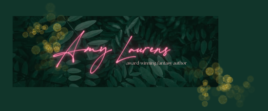Rory appreciates her big, sprawling family—and the beauty of twilight down at the lake—but sometimes she wishes she felt a little bit less like a freakish unicorn and a little bit more like she belonged.
Then a strange (cute) boy trips over her as they wait for the fireworks to begin; but Rory knows how that story goes, and she has better things to do with her time. Especially when disaster strikes in the dark.
Suddenly, the boy’s motivations? Yeah, majorly, majorly questionable, threatening everything Rory holds dear.
A richly imagined story for the postmodern reader who knows that teenage girls are as smart as they come, and family matters more than anything.
Moon and Morning
It was nearly dark, that moment when the trees become nothing more than black silhouettes clawing at the orange western sky, all jag-fingered and blade-leafed, when the breeze drops to nothing as the world holds its breath, pausing to appreciate the beauty of the death of another day, the end of one day’s way of life.
Around me, the crowd failed to notice. Oh, sure, a few people here and there pointed or gestured from their red tartan picnic rugs or shaded their eyes to watch from their navy blue blankets while they continued the conversation with the people around them; and a whole bunch of people had their phones out, snapping a few pics of the heavenly fire before swiping, cropping, colour-adjusting, filtering, and posting to their social media. The crowd saw the sunset, but they didn’t notice it.
If they had, they’d have stopped with their breath similarly held as the world plunged into sleep.
I stopped. I noticed. But then, it was kind of my self-appointed job to notice things like that.
And, I don’t know, I was a morning person.
I had nothing against night-owls—I was kind of jealous of them, to be honest, given as a teenager I was supposed to be one—but it seemed to me that people who were awake to see the very beginning of every new day, who were awake and about their lives while most of the world slumbered… We were used to seeing things that other people missed.
And I was used to noticing things alone.
I sighed, and contemplated writing that down; it would have made a good start to the next chapter of my story.
Once, just once, I thought about how great it would be to not feel like such a freak (unicorn, sorry Dad) in my massive, noisy, sprawling extended family, who spread out now on the five, six, seven or so picnic mats around me anticipating both the annual fireworks, and a subsequent lunar eclipse.
The last curve of sun disappeared behind the mountains, and a moment later the breeze returned, bringing with it the scent of plastic hotdogs and chemical popcorn and all that other standard outdoor sideshow fare, designed for optimal smell and minimum cost, about as real and edible as the notebook covering my crossed legs.
Actually, I’d rather eat the notebook. Sure, the paper’s bleached, but at least there’s some non-digestible fibre there that’s bound to be good for something.
Goosebumps prickled my skin and I rubbed them away, my calves first, then my forearms under the sleeves of my hoodie. It wasn’t cold, not this early in the year, but the breeze post-sunset was a marked contrast to the earlier warm breaths of the day.
“There!” Someone in the throng nearby shouted, and as one, we swivelled our heads, following their outstretched arm.
Sure enough, on the flat, eastern horizon even more broken by jagged trees than the western, the moon was rising, huge and full, pale silver in the dimming twilight.
Excitement thrilled through me. The last time there’d been a full lunar eclipse with good viewing possibilities, I’d been two. I remembered approximately as much of it as you’d expect from your average two-year-old: a vague sense of sitting on my father’s shoulders, curled around his warm head, his dark hair curling through my fingers; a sense of buoyancy, expectant waiting, delight.
But that could have been any one of a hundred shoulder rides, so it hardly counted.
My notebook shifted on my lap. I glanced up as a tall boy brushed past, trying hard not to disturb people as he wove his way through the picnic mats but—hello, my notebook—failing.
“You right?” I said, meaning ‘are you alright’, wanting to make sure he wasn’t going to lose his footing and tumble on top of someone or something.
He pulled a face down at me that I could barely discern in the growing dark, one eyebrow raised in disbelief or disdain or dis-something. “Sorry,” he said in that tone that meant he thought I was the one who should be sorry, and kept moving.
“No, I—” I sighed. Too late. He’d already moved on, wending his way past one of our peripheral mats where three of my young cousins hooted with laughter as their dad snapped a pack of neon glowsticks.
Pity. From this angle, in bad lighting, he’d been kind of cute.
